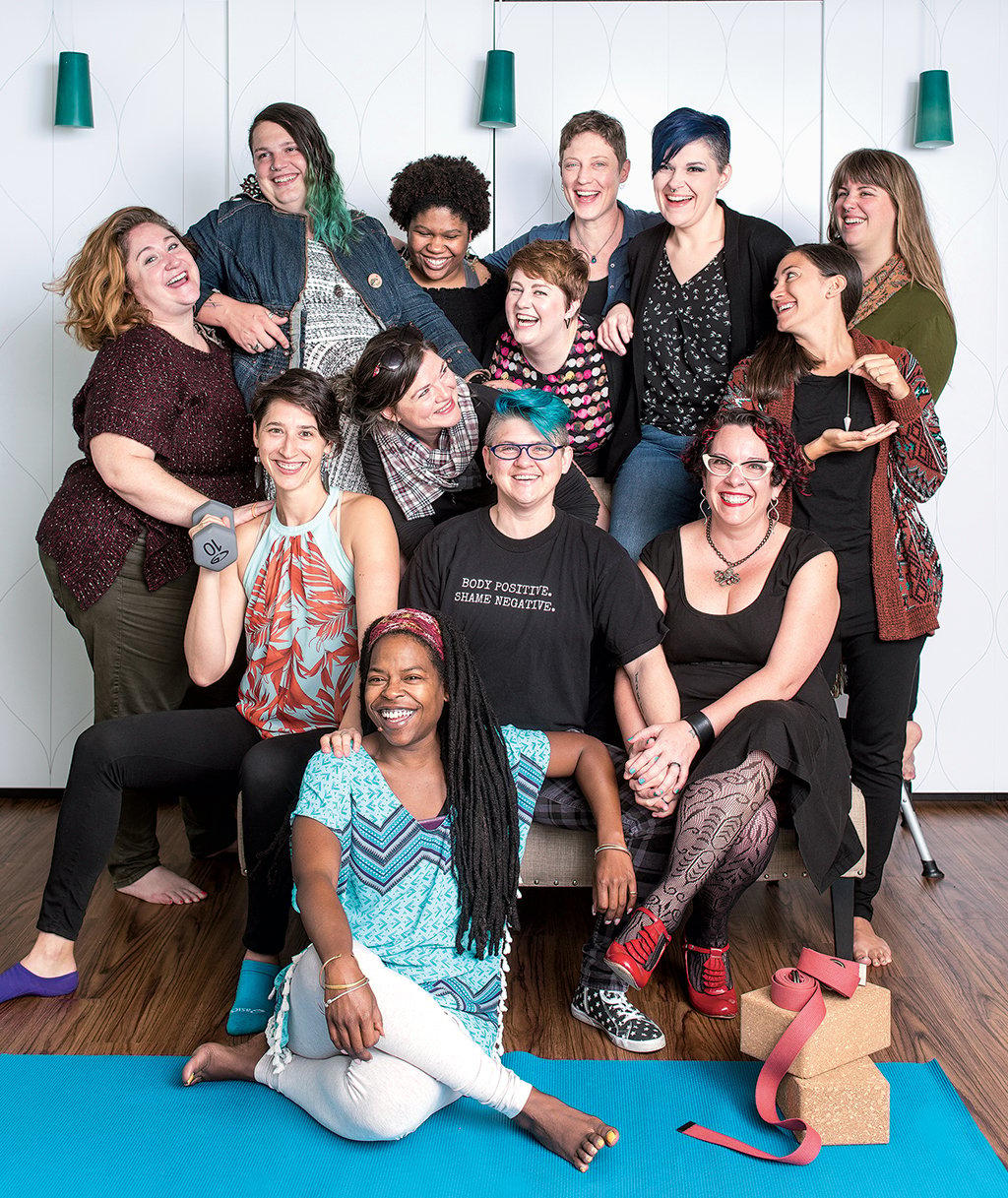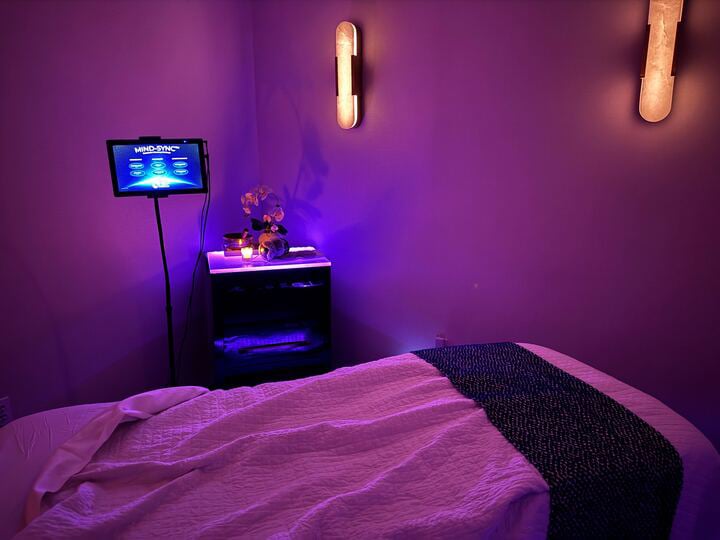If you’re like most human beings, you probably felt self-conscious about something the last time you climbed naked onto a massage table. Maybe you thought about the ten extra pounds you’d like to shed, or the fact that you’d forgotten to shave your legs.
Now imagine you’re transgender. While you were clothed in the lobby, you appeared male, but on the table, it’s clear you were born physically female. What will the therapist think? Will she laugh? Ask a hurtful question? Worse? Suddenly, getting a massage doesn’t just involve confronting a minor insecurity. It’s terrifying.
While studying at the Potomac Massage Training Institute, Frances Reed became acutely aware of this fear while practicing on transgender and gender-nonconforming friends: “Time after time after time, for two full years, I heard ‘I would never have gotten a massage if it wasn’t for you.’ ”
The idea for Freed Bodyworks was born. As soon as you reach its Capitol Hill doorstep, it’s obvious this isn’t your typical day spa.
A sign on the front of the red-brick Victorian rowhouse states: hate has no business here. In the cozy reception area, shelves hold pamphlets for various LGBTQ resources and health services. The intake form for new clients asks which pronouns they prefer (he/him, she/her, they/them, or other). And, actually, you won’t see the word “spa” anywhere.
“Spas are pretty driven by the beauty myth,” says Reed, who started the business in 2011 and now co-owns it with wife and business partner Jessica VonDyke. “There’s a lot of pressure to look [a particular way] in a spa.”
Reed has a thick silver hook through one ear and an impressive shock of two-toned turquoise hair that resembles a cresting wave. The 39-year-old was born female but doesn’t identify as a woman: “Female is not the right gender marker for me, but neither is male.” Some call this nonbinary gender, gender-nonconforming, or gender-queer. Put simply, says Reed, “I occupy that gray area in between gender.”
Reed uses the pronoun “they”—and in six years, they have grown Freed Bodyworks from a one- to a 20-person operation by loudly touting a message that all identities and bodies are welcome: “I want people to know from a mile away that this is who we are.”
Everyone on staff—including the nine other massage therapists besides Reed—has undergone “cultural competency” training, meaning they all know the appropriate terminology to use with clients and how to treat physical ailments specific to bodies in transition. For example, transgender women who raise the natural pitch of their voices frequently strain their neck and jaw muscles. Transgender men who rapidly build muscle to appear more masculine can experience posture issues—if they bind their breast tissue, they may suffer from chest and shoulder tension. New clients participate in consultations when they arrive so they won’t have to worry about answering sensitive questions or giving uncomfortable explanations once their appointments begin.
“You would want to trust, going into a professional space, that the [therapist] would handle it professionally, but that has not been true for so many people,” says Alex McNeill, a transgender man who’s been a Freed Bodyworks client for years. “It’s amazing to walk in confident that the person will understand fundamentally who you are and doesn’t need you to justify that.” McNeill says he has tried getting a massage at a typical spa, and though nothing “devastatingly awkward” happened, he found the experience uncomfortable enough that he couldn’t relax and enjoy it.
Before he had a double mastectomy, McNeill walked around hunched over to conceal his curves. “The muscles just kind of learn that’s how they’re supposed to be,” he says. When he began seeing Reed, they worked with him to relax those muscles and improve his posture. After his surgery, Reed massaged around the scar tissue to improve the healing process.
Another longtime client, Julie Fitzgerald, is not transgender but, as a queer woman, chooses not to adhere to stereotypical gender norms: “I don’t shave my legs. I don’t shave my armpits. You don’t have to go in there and worry about that.” Fitzgerald sees a number of the massage therapists on staff, including Reed. “Everybody in there is part of this vision of being really inclusive and really supportive. You can go to any of them and you’re gonna get that.”
Freed Bodyworks has grown beyond its initial client base. Of its 5,000-plus clients, Reed estimates that about 15 percent identify as transgender. The business also caters to sexual-assault survivors who have specific requirements about where and how they’re comfortable being touched. Another clientele includes sex workers and exotic dancers who, much like the trans community, may feel judged walking into a mainstream spa. For instance, one woman recently came in for an injury sustained during a consensual spanking incident.
About half of Freed Bodyworks’ clients, says Reed, are just people who want to support a small business with a progressive mission—a segment that has been on the upswing since the election: “I mean, I hate even uttering these words, but Trump is good for my business.” Additionally, Reed notes, they and the other therapists have lately seen an increase in government workers distraught over the new administration, seeking massage for stress-relief.
There is, however, an exception. “I have one very conservative, Trump-loving client,” says Reed, who explains that the two have agreed not to discuss politics. The man’s chiropractor referred him. You have to wonder if he was playing a bit of a joke on his patient.
This article appears in the November 2017 issue of Washingtonian.




















